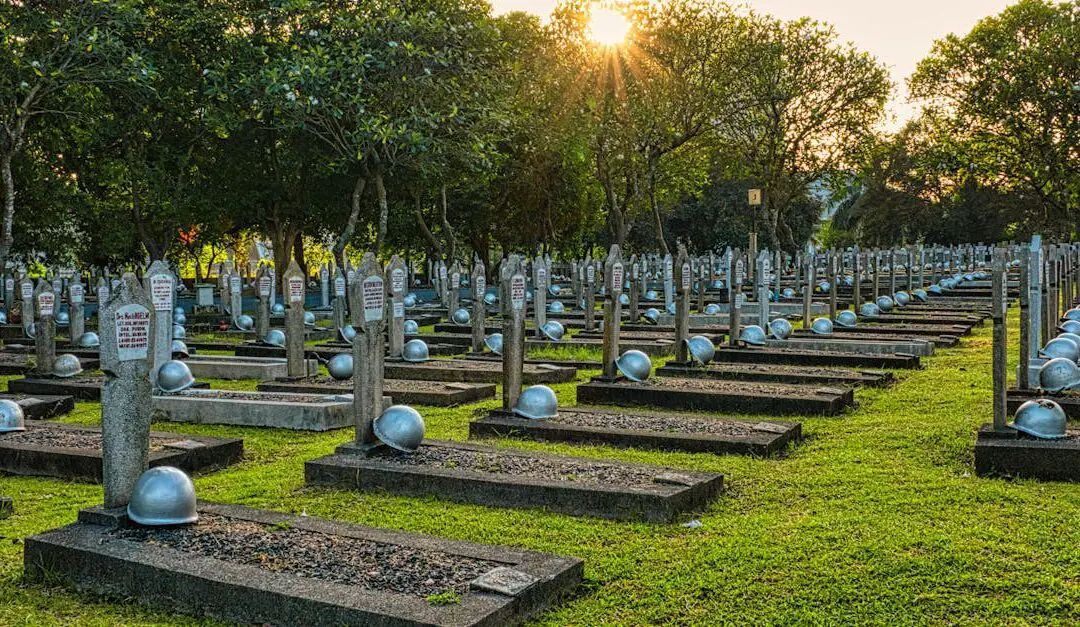Holiday travel is an exciting time of year, but it can also be stressful and overwhelming, especially when traveling internationally. With different cultures, languages, and customs, it’s important to take extra precautions to ensure a safe and enjoyable trip. In this article, we will provide some helpful tips for holiday travel safety when embarking on an international trip.

One of the most important things to consider when traveling internationally is the safety of your personal belongings. Pickpocketing and theft are common in tourist areas, so it’s important to keep valuables such as wallets, passports, and phones secure. Invest in a money belt or a secure bag that can be worn across the body to keep your belongings safe.
Another important aspect of holiday travel safety is staying healthy while abroad. It’s easy to get caught up in the excitement of trying new foods and drinks, but it’s important to be cautious of what you consume. Research the local cuisine and avoid eating raw or undercooked foods, as well as street food that may not be prepared in a sanitary manner. Additionally, stay hydrated and carry hand sanitizer to avoid getting sick.
Understanding International Travel Risks

When traveling internationally, it is important to be aware of the potential risks and take necessary precautions to ensure a safe trip. Here are some common risks to keep in mind:
Health Risks
Different destinations may have varying health risks, such as infectious diseases, food-borne illnesses, and environmental hazards. It is recommended to research the health risks of the destination and take necessary precautions, such as vaccinations and packing necessary medications.
Crime Risks
Tourists may be targeted for crimes such as theft, scams, and assault. It is important to be aware of the common scams and pickpocketing techniques in the destination and take measures to protect personal belongings and avoid dangerous areas.
Political and Social Risks
Political instability, protests, and terrorism are risks that can affect international travel. Travelers should stay informed of current events and any potential risks in the destination, and avoid any areas with high tensions or political unrest.
Transportation Risks
Different countries may have varying safety standards for transportation, such as road safety and aviation regulations. It is important to research the transportation options in the destination and choose reputable companies with good safety records.
By understanding and preparing for these potential risks, travelers can have a safer and more enjoyable international trip.
Pre-Travel Health Consultations
Before embarking on an international trip, it is important to schedule a pre-travel health consultation with a healthcare provider. This consultation can help identify potential health risks and provide recommendations for necessary vaccinations or medications.
During the consultation, the healthcare provider may review the traveler’s medical history, current medications, and any allergies. They may also discuss the destination country’s health risks, such as infectious diseases or exposure to certain environmental factors.
Based on this information, the healthcare provider may recommend vaccinations or medications, such as anti-malaria medication or antibiotics. It is important to follow the healthcare provider’s recommendations and complete any necessary vaccinations or medications before departing on the trip.
In addition to vaccinations and medications, the healthcare provider may provide general health advice for the traveler, such as tips for staying hydrated, avoiding foodborne illnesses, and preventing insect bites.
Overall, a pre-travel health consultation can help ensure a safe and healthy international trip. Travelers should schedule this consultation well in advance of their trip to allow time for any necessary vaccinations or medications.
Vaccinations and Health Precautions
Required Vaccinations
When traveling internationally, it is important to research and understand the required vaccinations for the destination country. Some countries require proof of vaccination for diseases such as yellow fever, polio, or measles. It is recommended to visit a travel health clinic or consult with a healthcare provider to ensure all necessary vaccinations are up to date before embarking on an international trip.
Recommended Vaccinations
In addition to required vaccinations, there may be recommended vaccinations for certain destinations. These may include vaccines for diseases such as hepatitis A and B, typhoid fever, or rabies. Again, it is important to consult with a healthcare provider or travel health clinic to determine which vaccines are recommended for the specific destination.
General Health Tips
Aside from vaccinations, there are other health precautions to take when traveling internationally. It is recommended to pack a basic first aid kit, including items such as bandages, pain relievers, and anti-diarrheal medication. It is also important to practice good hygiene, such as washing hands frequently and avoiding contact with sick individuals.
When it comes to food and water, it is important to be cautious. It is recommended to drink bottled water and avoid ice in drinks. It is also advised to avoid eating raw or undercooked food, and to stick to hot, well-cooked meals.
By taking the necessary health precautions and obtaining the required and recommended vaccinations, travelers can help ensure a safe and healthy international trip.
Travel Insurance
When traveling internationally, it’s important to consider purchasing travel insurance to help protect against unexpected events. Travel insurance can provide coverage for medical emergencies, trip cancellations, and other unforeseen circumstances. Here are two types of travel insurance to consider:
Health Insurance
Travelers should check with their current health insurance provider to see if they offer coverage for international travel. If not, purchasing a separate travel health insurance policy can provide coverage for medical emergencies, including hospitalization, emergency medical evacuation, and repatriation of remains. It’s important to carefully review the policy to ensure it covers the traveler’s specific needs and activities planned during the trip.
Trip Cancellation Insurance
Trip cancellation insurance can provide coverage for prepaid, non-refundable expenses in case the trip is cancelled or interrupted due to unforeseen events, such as illness, injury, or severe weather. This type of insurance can also provide coverage for additional expenses incurred due to delayed or cancelled flights.
Before purchasing travel insurance, travelers should carefully review the policy to understand what is covered and what is excluded. It’s also important to keep a copy of the policy and emergency contact information with them while traveling.
Remember, travel insurance can provide peace of mind and help protect against unexpected events while traveling internationally.
Safety Measures During Travel
When traveling internationally, it’s important to take safety measures to ensure a pleasant trip. Here are some tips to keep in mind:
Personal Safety
- Keep your passport and other important documents in a safe place.
- Don’t carry large amounts of cash or wear expensive jewelry.
- Avoid walking alone at night in unfamiliar areas.
- Be aware of your surroundings and trust your instincts.
Food and Water Safety
- Only drink bottled water or water that has been boiled.
- Avoid eating raw or undercooked food, especially meat and seafood.
- Wash your hands frequently, especially before eating.
- Pack snacks and non-perishable food items in case of emergency.
Transportation Safety
- Research the safest mode of transportation for your destination.
- Always wear a seatbelt in a car or taxi.
- Be cautious when using public transportation, especially at night.
- Keep your belongings with you at all times.
By following these safety measures, travelers can ensure a safe and enjoyable trip abroad.
Emergency Contacts and Communication
When traveling internationally, it’s important to have a plan for emergency situations. This includes having a list of emergency contacts and knowing how to communicate in case of an emergency.
Emergency Contacts: Before leaving for an international trip, it’s important to make a list of emergency contacts. This should include the contact information for the nearest embassy or consulate, as well as the phone number for your travel insurance provider. You should also have the contact information for a trusted friend or family member back home who can help in case of an emergency.
Communication: In case of an emergency, it’s important to have a way to communicate with others. Make sure to have a fully charged cell phone with an international plan or a local SIM card. It’s also a good idea to have a backup charger and a portable battery pack.
Another option is to use messaging apps like WhatsApp or Viber, which allow you to communicate with others over Wi-Fi or data. Make sure to have these apps downloaded and set up before leaving for your trip.
In addition, it’s important to have a plan in case you lose your passport or other important documents. Make sure to keep copies of your passport, travel insurance, and other important documents in a safe place, like a hotel safe or a secure online storage service.
By having a plan for emergency situations and knowing how to communicate, you can ensure a safer and more enjoyable international trip.
Cultural Awareness and Respect
When traveling internationally, it is crucial to be aware of and respectful towards the local culture. Different countries have varying customs, traditions, and beliefs that may differ from what one is used to. Being mindful of these differences can help prevent misunderstandings and avoid offending locals.
One way to show cultural respect is by dressing appropriately. It is essential to research the dress code of the country you are visiting and dress accordingly. For instance, in some countries, it is customary for women to cover their heads or wear long dresses. In contrast, in others, shorts and tank tops may be considered inappropriate.
Another way to show cultural respect is by learning a few phrases in the local language. Even if you are not fluent, learning basic greetings and phrases like “please” and “thank you” can go a long way in making a positive impression.
It is also important to be mindful of local customs and traditions. For example, in some countries, it is customary to remove shoes before entering someone’s home or a place of worship. In others, it may be considered rude to eat with your left hand or to show the soles of your feet.
By being aware of and respectful towards the local culture, travelers can have a more enjoyable and safer trip.
Post-Travel Health Check
After returning from an international trip, it’s important to take care of your health. Here are some tips to help you stay healthy:
- Visit a doctor: If you feel unwell after returning from your trip, it’s important to visit a doctor. They can help diagnose any illnesses you may have picked up during your travels and provide treatment.
- Monitor your symptoms: Keep an eye out for any symptoms that may indicate an illness, such as fever, cough, or diarrhea. If you experience any of these symptoms, seek medical attention immediately.
- Stay hydrated: Drinking plenty of water can help flush out any toxins in your body and keep you healthy. Make sure to drink enough water during and after your trip.
- Get enough rest: Jet lag and travel fatigue can take a toll on your body. Make sure to get enough rest and take it easy for a few days after returning home.
- Practice good hygiene: Wash your hands frequently, especially before eating or touching your face. Use hand sanitizer when soap and water are not available.
By following these tips, you can help ensure that you stay healthy after your international travels.

Hello, Holiday Travelers! I’m Judith Eve, the founder and principal writer for HeyFamilyTravelers and CruisingtonPost, and now HeyHolidayTravelers.com
My home is nestled in beautiful South Florida, where the sun kisses the waves and the beach stretches out like an endless welcome mat. It’s a gorgeous place that brings joy and inspiration, but my spirit has always been captivated by the allure of distant shores and unique cultures. The thrill of packing a suitcase, stepping aboard a plane or a ship, and waking up in a new destination never fails to ignite my soul.
I started my life’s adventure as a mother of two wonderful children who have since blessed me with three delightful grandchildren. The memories we’ve built exploring the globe together are the treasures of my heart. This love for family and travel is the core of Heyholidaytravelers, and HeyFamilyTravelers, places where I share our stories, tips, and experiences, aiming to inspire other families to embark on their own adventure-filled journeys.
Over the years, my family and I have discovered our shared passion for cruising. There is something incredible about floating on the endless sea, with world-class service, fabulous entertainment, and the excitement of exploring multiple destinations in one trip. My love for this unique form of travel led me to establish CruisingtonPost, another platform where I focus on sharing our sea-borne adventures, cruise reviews, and travel advice.
My objective is simple. I want to encourage everyone, especially families and seniors, to step out of their comfort zones, explore the world, and create their own cherished memories. Life’s journey is full of beautiful places and moments waiting to be discovered. I hope that through my stories and articles, you’ll find the inspiration and practical guidance you need to set sail on your own grand adventure, during special holidays, or any time of year.
Thank you for stopping by. I look forward to sharing family travel escapades with you and hearing about your own travels as well.
Happy Travels,
Judith Eve





